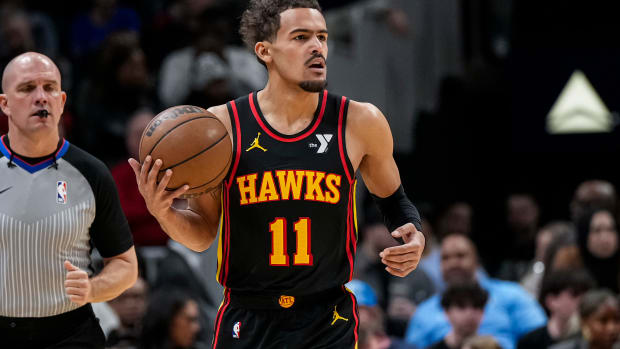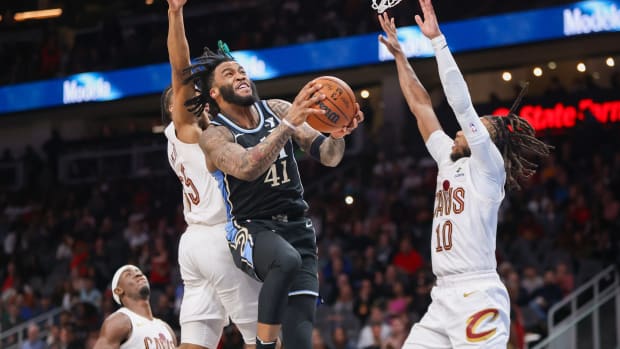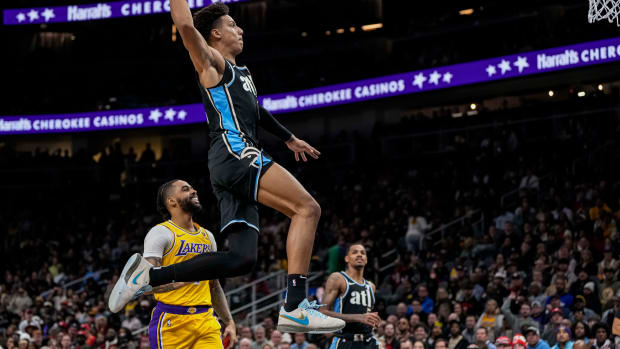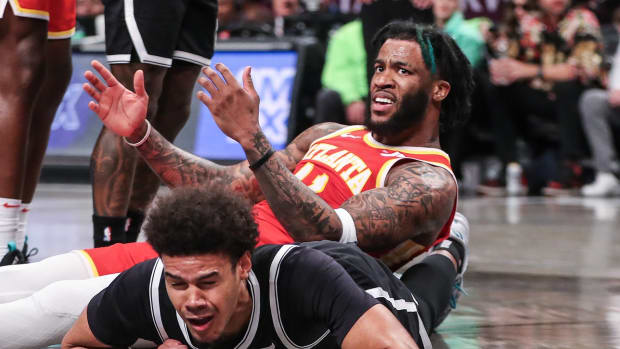Defensive Rebounding Remains A Massive Weakness for Hawks
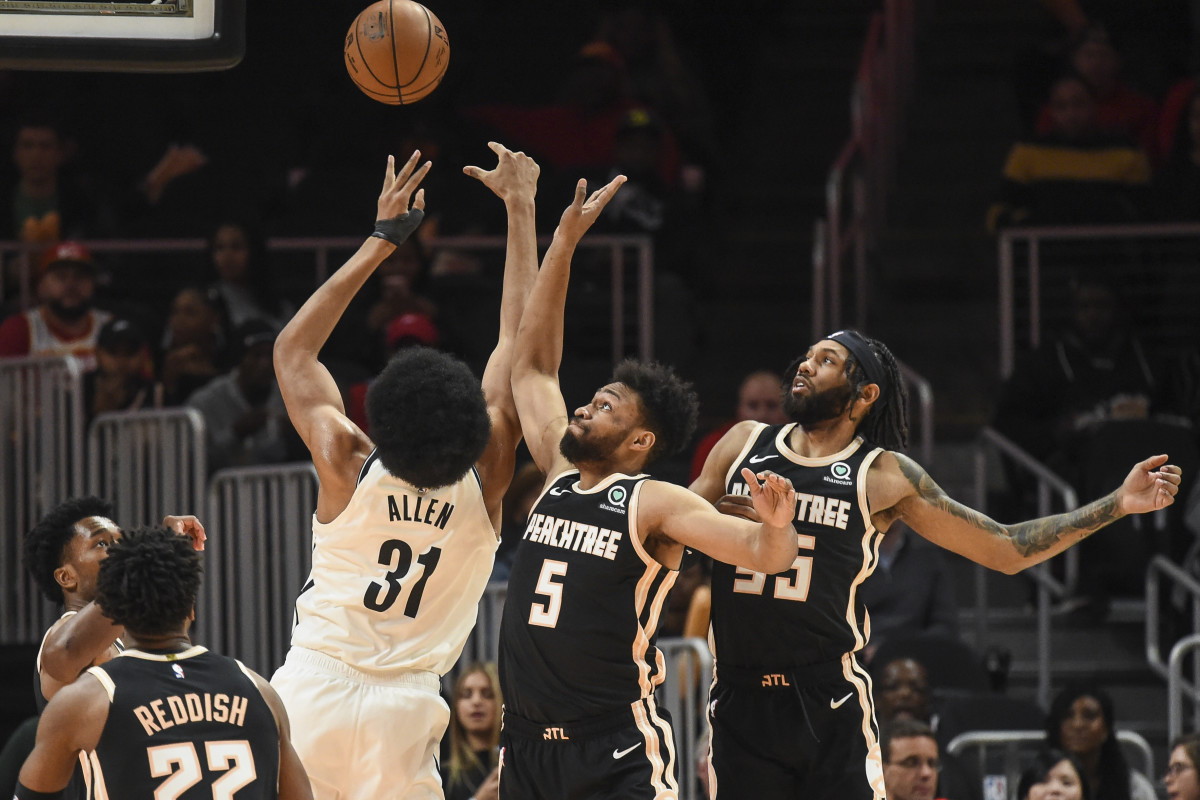
The Hawks’ 130-118 loss to the Nets Wednesday night swung, almost entirely, on Atlanta’s inability to rebound the ball. The Hawks’ 28-ranked defense is due largely to their league-worst defensive rebounding rate, and most all of Brooklyn’s 12-point scoring edge can be attributed to their advantage on the glass. Despite outshooting the Nets and committing an equivalent amount of turnovers, Brooklyn’s offense was still markedly more efficient than Atlanta’s. The Nets grabbed 45 percent (!) of their own misses, including seven offensive boards from Jarrett Allen alone. For the game, they outrebounded Atlanta 53-35, and the Hawks claimed less than half of available defensive rebounds through the first three quarters, by which point Brooklyn had built up a lead large enough to sustain.
“We didn’t rebound the ball well tonight at all,” said Cam Reddish. “They had a bunch of offensive rebounds and I feel like that’s what killed us.” The rebounding disparity not only led to 26 Nets second-chance points, but completely stifled Atlanta’s transition attack. The mere act of inbounding the ball inhibits a team’s ability to push the ball, and the Hawks spent far too much time taking the ball out of the basket. Less than 10 percent of their possessions came in transition, and while they scored efficiently in both the halfcourt and transition, they simply didn’t get enough easy looks. The Nets, by contrast, ran on over 18 percent of their possessions, pushing the ball after rebounds and probing into the lane before Atlanta’s defense could set itself.
The bigger issue, however, was the extra opportunities the Nets earned on the offensive boards. They scored 1.23 points per play on putback attempts, and given how active Brooklyn was on that front, those plays add up. Allen cleaned up seemingly every miss, and even the Net guards picked up second chances inside. Atlanta’s bigs had rebounds either sail by them or slip through their hands, but Brooklyn was more sure-handed.
The Hawks’ troubles on the glass dovetailed with other defensive issues, namely containing the ball in the pick-and-roll. Allen was a constant threat rolling toward the rim and Taurean Prince carried the Nets’ offense for much of the first half. After struggling to convert shots around the rim in the first half, Spencer Dinwiddie finally figured out Atlanta’s defense in the second, swerving by his defender and around rim protectors for soft layups off the glass. That allowed Garrett Temple to roam free for 27 points on 6-of-9 3-point shooting. Eventually, Atlanta just had too many weapons for which to account. “It’s a tough team to defend,” Pierce said. “Spencer Dinwiddie’s tough in the pick-and-rolls, with his ability to get downhill, and we just had no answer for that.”
These aren’t new problems for the Hawks, who have lost games because of dynamic guards and rebounding disparities before. Pierce said he’d like to see a more aggressive approach toward defending pick-and-rolls and applying ball pressure to shooters and ball-handlers. The Hawks’ bigs could do a better job containing guards like Dinwiddie so as not to let them skate downhill so easily. “It doesn’t matter who’s injured,” Pierce said. “Whoever is on the court has to do a little bit better with regard to their responsibility.”
Fixing their rebounding issue comes down, in part, to energy – making a concerted effort to box out and pursue the ball when it comes off the rim. But the Hawks also don’t have very many good rebounders. Alex Len has been a below-average defensive rebounder this season, while Damian Jones is one of the worst rebounding centers in the league. Jabari Parker hasn’t provided enough on the glass either since the start of John Collins’ suspension. All three must make rebounding a greater priority, they may be limited in how much they can actually change.


